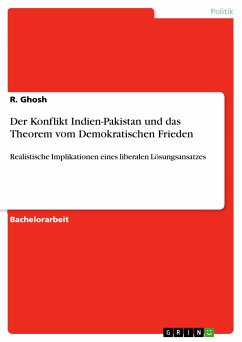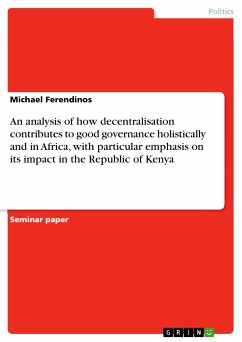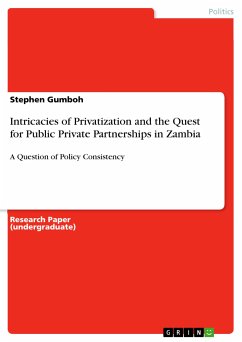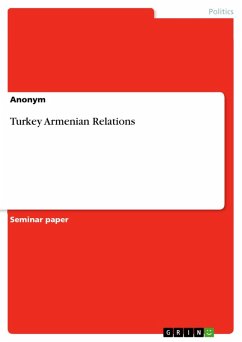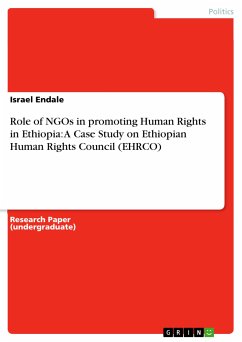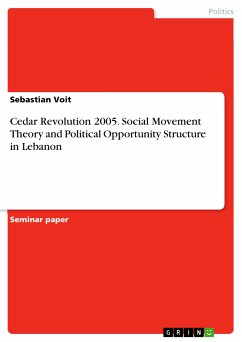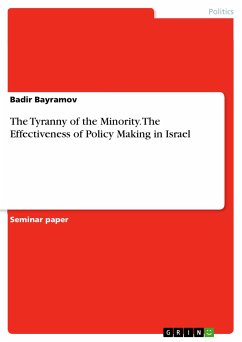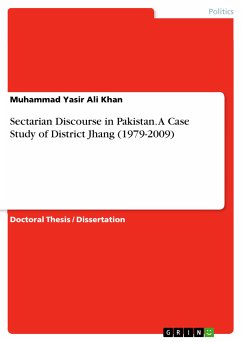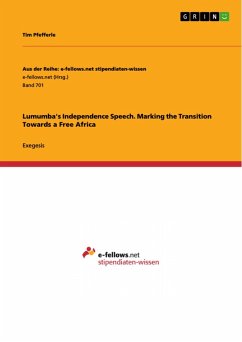
Pakistan - A young country with many leaders. Did they all fail? (eBook, PDF)

PAYBACK Punkte
0 °P sammeln!
Seminar paper from the year 2005 in the subject Politics - Region: South Asia, grade: 2,0, Martin Luther University (Institut für PoWi), course: Ps: Nicht-demokratische Herrschaftssysteme, language: English, abstract: Writing an essay about a constitution which has undergone as many changes as Pakistan's did is not an easy task. One cannot look at a final product just stating what the current situation is and how people do get along with it. Understanding any constitution and especially the Pakistani one is a complex process of drawing a picture of history - a history of a religion, a history...
Seminar paper from the year 2005 in the subject Politics - Region: South Asia, grade: 2,0, Martin Luther University (Institut für PoWi), course: Ps: Nicht-demokratische Herrschaftssysteme, language: English, abstract: Writing an essay about a constitution which has undergone as many changes as Pakistan's did is not an easy task. One cannot look at a final product just stating what the current situation is and how people do get along with it. Understanding any constitution and especially the Pakistani one is a complex process of drawing a picture of history - a history of a religion, a history of a people and a history of lasting political changes. Trying to understand the Pakistani constitution is trying to understand how this constitution evolved; trying to understand why the Pakistanis are more content under the currentdictatorshipof Pervez Musharraf than they have been for a long time before; trying to understand the evolution of one of the world religions, namely Islam, and how it influenced the constitution; trying to get an understanding of what happened in this country. After having read this essay one will most probably come to the conclusion that this constitution is in no way finished, that it will undergo changes for the next 58 years as it has done for the last 58 years. Another conclusion will be that to date almost all of the Pakistani leaders failed in one way or the other. In the following the historical background that established the framework for the country that we look at today will be described - a country ruled by a self proclaimed military dictator; a country with a per capita income of 700 $1per annum; a country which is at constant struggle with its nearest neighbours, namely India and Afghanistan - and relations to Iran and China haven't always been the best as well; a country that has been dependent on subsidies of Western nations, especially the United States for decades; a country that suffers from deep inner disruptions between fundamentalists and moderate or more liberal, more democratic Muslims; but most of all, a very young country still searching for its very own way to become an "Islamic democracy" one day. In order to outline the historical development of Pakistan and finally describe the current situation of this nation I will go into detail about every legislative period, which important amendments to the constitution were made during that span of time and what the effects on the people were always taking in account the most controversial subject of religion and how it was exercised by the leaders.
Dieser Download kann aus rechtlichen Gründen nur mit Rechnungsadresse in A, B, BG, CY, CZ, D, DK, EW, E, FIN, F, GR, HR, H, IRL, I, LT, L, LR, M, NL, PL, P, R, S, SLO, SK ausgeliefert werden.





